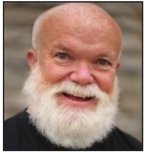
What gives Lansing officials the right to stop partygoers from tossing a little person at a wall? The question — at least on its surface — seems to be a no-brainer. But local officials are quickly realizing some broader implications.
City Councilman Peter Spadafore earlier this month was shocked to learn of an outdated Lansing ordinance that regulates the practice of “dwarf tossing” within city limits.
Businesses, under the ordinance, need to obtain a permit before they can allow their guests to engage in what many have since labeled an inhumane activity.
Spadafore proposed an amendment to eliminate the practice altogether before it hit a roadblock late last month.
For the uninitiated, dwarf tossing is a comedy-oriented event where drunken patrons hoist a helmet-clad individual with dwarfism over their shoulders and attempt to toss him or her at a designated target, sometimes a Velcro-lined wall or an air mattress on the other side of a pub. The farthest throw is then declared the winner.
City Clerk Chris Swope said a permit for dwarf tossing hasn’t been issued in at least 12 years, but Spadafore wanted to ensure that it could never even become a possibility. His amendment was set to go before City Council last week but was pulled from the table for review after concerns arose regarding civil rights.
“If we say no one can do this, it then becomes a question about their individual liberties,” Spadafore said. “It’s a possible way for someone to make a living. Is the act done to dehumanize someone or is it a viable method for an individual to make some money? The answer wasn’t as cut and dry as one might think.”
Danny Black — reportedly billed as the “Heidi Fleiss of dwarf talent” — embraced his disability to the extent that he has generated a lucrative career from it. He started as an aspiring photographer at Lansing Community College and later worked as a vacuum salesman before transitioning into a career in the entertainment business.
Today he has as many as 250 dwarves on his “roster” with at least 25 who actively accept gigs around the country. He estimated to have booked at least three dwarf-tossing events since he founded Shortdwarf.
com — a website that advertises a costumed “midget” rental service for a variety of different events. But none have been local.
“I thought I could take advantage of my disadvantage,” Black said, noting he initially supported dwarf tossing bans but has since taken a backseat in his advocacy.
“This whole dwarf-tossing issue is a real gargantuan toss up. People have their shorts up in a bunch over something that doesn’t concern them.”
Little People of America — an organization that Black said ousted him more than a decade ago for perpetuating stereotypes and using the word “midget” — takes a firm stance against the practice. Advocacy Director Michelle Kraus contended dwarf tossing is unsafe and makes little people appear as “freak show characters.”
“I can’t even consider this a civil rights issue, to deny people their livelihood or employment,” Kraus said. “They can earn money by doing it but it doesn’t provide for a skill. The little person isn’t offering any special skills or abilities. It’s just because of their stature. We should not be kept away or secluded into some type of circus.”
Kraus said two states — Florida and New York — have implemented laws against dwarf tossing. Statewide criticism in 2016 reached a climax after more than 3,700 people signed a petition against the practice following an event at a Detroit-area bar. Advocates have argued dwarf tossing has enabled stereotypes to persist.
Spadafore said nobody is clamoring to reach a resolution on his initial proposal and suggested the recent concerns might delay any potential ordinance changes in the future. The resolution was sent back to the city’s Public Service Committee and could again be reviewed at a meeting later this month, officials said.
“It’s not up to someone else to to deny this opportunity for somebody,” Black added. “Every four or five years, someone gets their shorts in a bunch about this, and after a while it just goes away. I feel this whole country is too politically correct. It’s just the era that we’re living in. I don’t know I can get upset one way or another.”
Support City Pulse - Donate Today!
Comments
No comments on this item Please log in to comment by clicking here